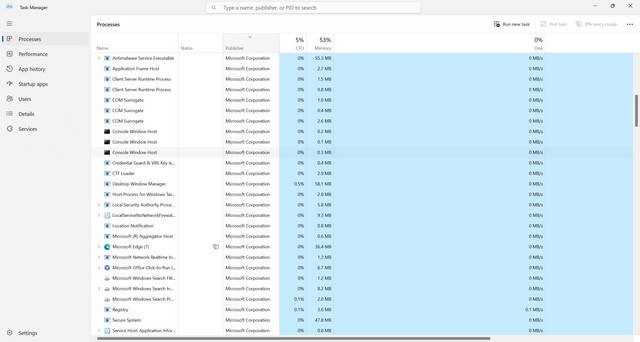When you open the Task Manager on your Windows computer, you may come across a process called “Intel(R) Management and Security Application Local Management Service Helper” or “LMS.exe” running in the background. This process is associated with Intel’s Management Engine (ME) technology, which is built into many Intel processors. In this article, we will explore why this process is running, its purpose, and whether it poses any security risks.

Understanding Intel Management Engine (ME)
Intel Management Engine (ME) is a hardware-based technology that is integrated into Intel processors. It provides out-of-band management capabilities, allowing system administrators to remotely monitor, manage, and repair computers even when the operating system is not running or the computer is turned off. ME operates independently of the main CPU and has its own dedicated microprocessor, memory, and network interface.
The Local Management Service (LMS) is a component of Intel ME that runs as a background process on the computer. Its primary function is to facilitate communication between the ME firmware and the operating system. LMS acts as a bridge, enabling software applications to interact with the ME firmware and utilize its management capabilities.
Why Is LMS Running in Task Manager?
There are several reasons why the LMS process may be running in Task Manager:
- Intel Active Management Technology (AMT): If your computer supports Intel AMT, LMS is required to enable remote management features. AMT allows IT administrators to remotely control and troubleshoot computers, perform hardware inventory, deploy software updates, and more. LMS facilitates the communication between the AMT firmware and the operating system.
- Intel Small Business Advantage (SBA): LMS is also used by Intel SBA, a suite of productivity and security tools designed for small businesses. SBA provides features such as data backup and restore, software monitoring, and USB port blocking. LMS enables the communication between the SBA firmware and the operating system.
- Intel vPro Technology: LMS is a component of Intel vPro, a platform that enhances security, manageability, and productivity in business environments. vPro includes features like remote management, hardware-based security, and virtualization. LMS is necessary for the communication between the vPro firmware and the operating system.
If your computer does not have any of these Intel technologies enabled, it is possible that LMS is running due to a software installation or driver issue. In such cases, updating your Intel ME drivers or reinstalling the associated software may resolve the issue.
Is LMS a Security Risk?
There have been concerns raised about the security implications of Intel ME and its associated processes like LMS. Since ME operates independently of the main CPU and has full access to the computer’s hardware, there is a theoretical risk that it could be exploited by malicious actors to gain unauthorized access or control over the system.
However, it is important to note that Intel ME is designed to enhance system management and security, not to be a backdoor for attackers. Intel has implemented various security measures to protect ME from unauthorized access, including encryption and authentication mechanisms. Additionally, Intel regularly releases firmware updates to address any potential vulnerabilities.
While the possibility of security risks exists, the likelihood of an average user encountering a ME-related security issue is relatively low. The majority of reported vulnerabilities require physical access to the computer or administrative privileges to exploit.
Nevertheless, it is always a good practice to keep your system and firmware up to date to ensure you have the latest security patches. Regularly scanning your computer for viruses and malware is also recommended. You can use Malwarebytes Free, a reputable antivirus software, to perform a thorough scan and remove any potential threats.
Conclusion
The Intel(R) Management and Security Application Local Management Service Helper process (LMS.exe) is a background process associated with Intel’s Management Engine technology. It enables communication between the ME firmware and the operating system, facilitating remote management and security features provided by Intel technologies like AMT, SBA, and vPro.
While there have been concerns about the security implications of Intel ME, the likelihood of an average user encountering a ME-related security issue is relatively low. Intel has implemented security measures and regularly releases firmware updates to address any potential vulnerabilities. Keeping your system and firmware up to date, as well as scanning for viruses and malware, can help mitigate any potential risks.
Overall, LMS running in Task Manager is a normal and expected behavior on systems with Intel ME-enabled technologies. It is an integral part of the system’s management and security capabilities, providing valuable features for both individual users and businesses.



